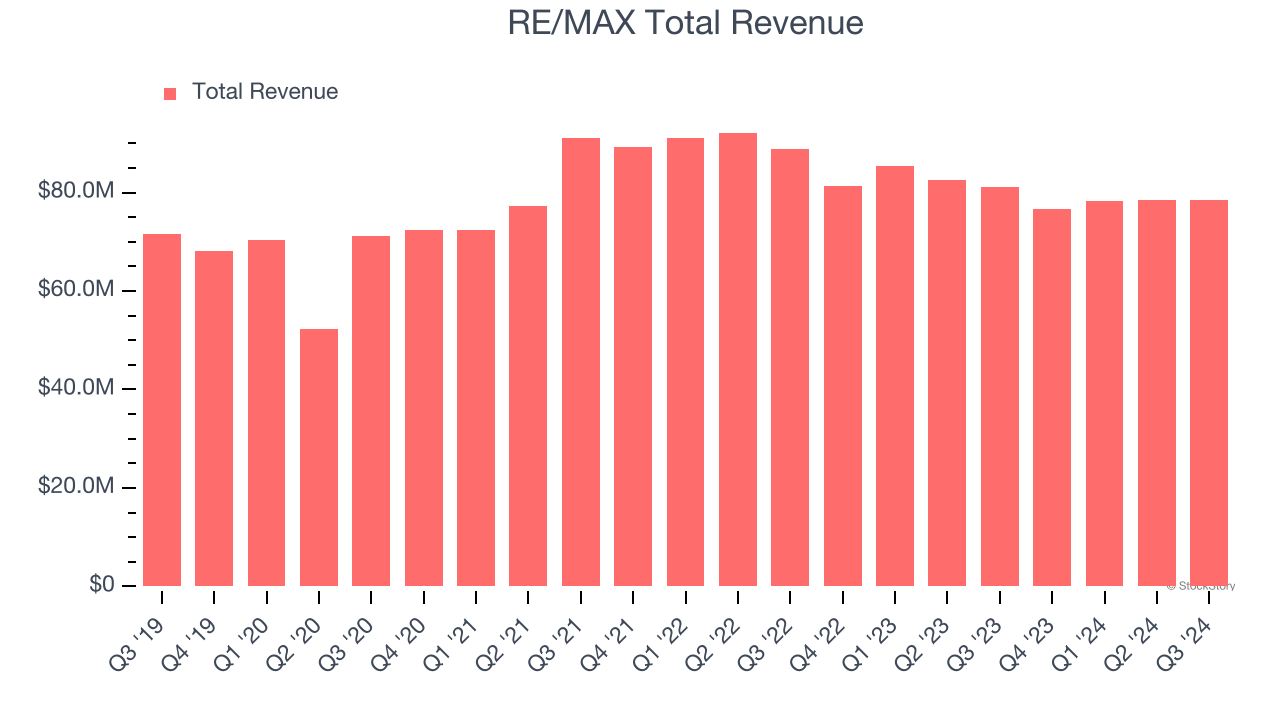
Real estate franchise company RE/MAX (NYSE: RMAX) will be announcing earnings results tomorrow afternoon. Here’s what to look for.
RE/MAX beat analysts’ revenue expectations by 0.8% last quarter, reporting revenues of $78.48 million, down 3.4% year on year. It was a mixed quarter for the company, with an impressive beat of analysts’ adjusted operating income estimates. It reported 145,483 agents, flat year on year.
Is RE/MAX a buy or sell going into earnings? Read our full analysis here, it’s free.
This quarter, analysts are expecting RE/MAX’s revenue to decline 2.7% year on year to $74.5 million, improving from the 5.7% decrease it recorded in the same quarter last year. Adjusted earnings are expected to come in at $0.29 per share.

Analysts covering the company have generally reconfirmed their estimates over the last 30 days, suggesting they anticipate the business to stay the course heading into earnings. RE/MAX has missed Wall Street’s revenue estimates four times over the last two years.
Looking at RE/MAX’s peers in the real estate services segment, some have already reported their Q4 results, giving us a hint as to what we can expect. Marcus & Millichap delivered year-on-year revenue growth of 44.4%, beating analysts’ expectations by 20.2%, and JLL reported revenues up 15.8%, topping estimates by 1.4%. Marcus & Millichap traded up 5.4% following the results.
Read our full analysis of Marcus & Millichap’s results here and JLL’s results here.
Investors in the real estate services segment have had steady hands going into earnings, with share prices up 1.5% on average over the last month. RE/MAX’s stock price was unchanged during the same time and is heading into earnings with an average analyst price target of $9.17 (compared to the current share price of $10.06).
Unless you’ve been living under a rock, it should be obvious by now that generative AI is going to have a huge impact on how large corporations do business. While Nvidia and AMD are trading close to all-time highs, we prefer a lesser-known (but still profitable) semiconductor stock benefiting from the rise of AI. Click here to access our free report on our favorite semiconductor growth story.




